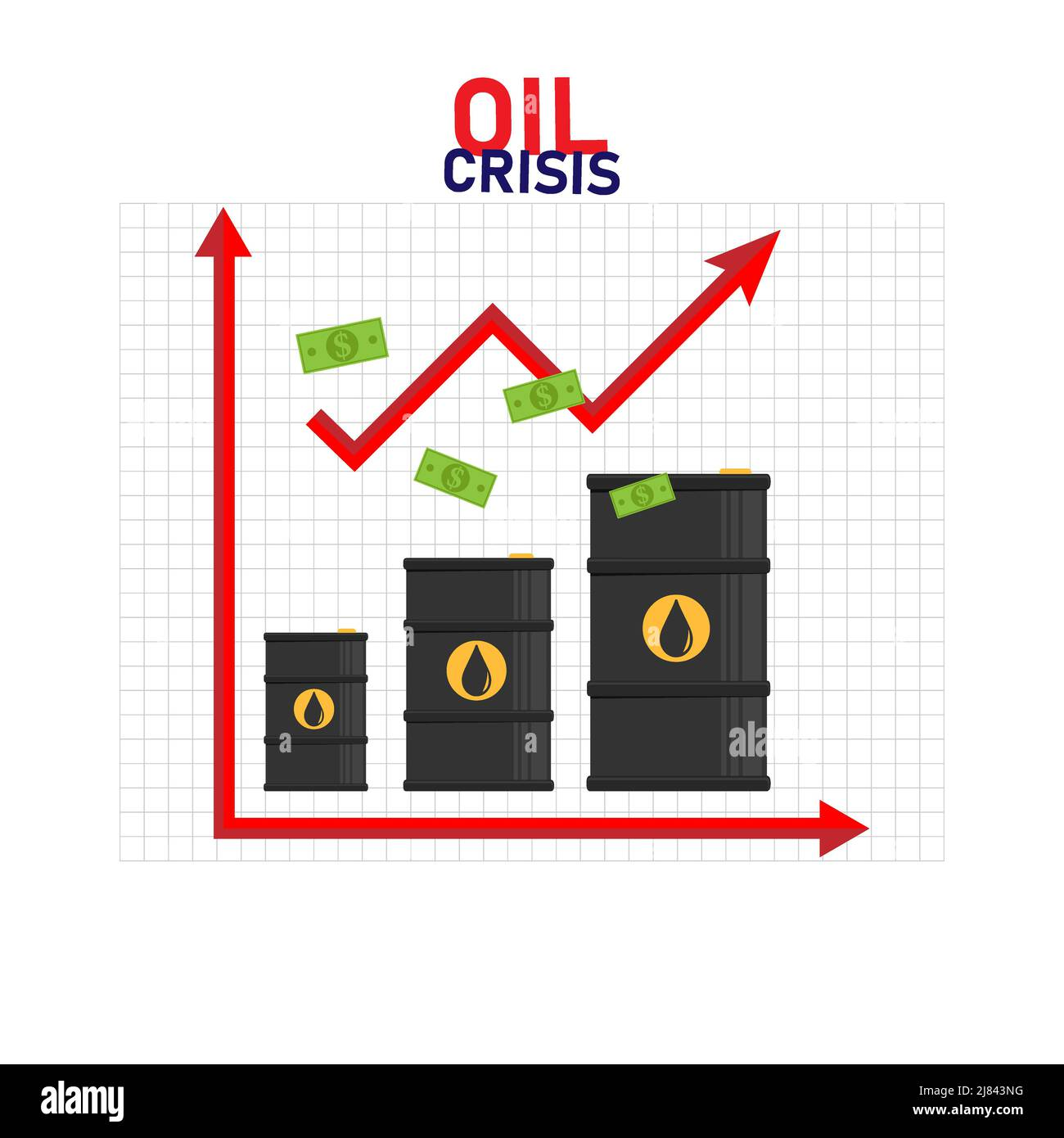Rising oil prices are a significant concern in today’s economic landscape, directly impacting consumer electronics and triggering a ripple effect throughout various industries. As crude oil prices approach $100 per barrel due to geopolitical unrest, the manufacturing sector faces increased costs associated with transportation and raw materials. Economists warn that if oil prices continue to climb, the cost of electronics is bound to rise, affecting everything from mobile phones to laptops. Furthermore, these rising oil prices influence consumer confidence, as individuals may hesitate to spend amid escalating costs. This scenario poses a critical challenge for electronics manufacturers, who must navigate the delicate balance between production costs and consumer demand.
The escalation of crude oil costs poses a pressing dilemma, particularly regarding its repercussions on the manufacturing of tech gadgets and transportation networks. With the global market witnessing surges in fossil fuel prices, stakeholders in the electronics industry are bracing for potential challenges that could arise due to these heightened expenses. Such economic fluctuations might discourage consumer spending, thereby affecting the overall confidence and demand in the market. Additionally, manufacturers might feel the pressure to adjust their investment strategies, contemplating the sustainability of new technologies amid increasing operating costs. As the situation evolves, it will be crucial for companies to adapt to these changes and mitigate their effects on production and pricing.
The Effects of Rising Oil Prices on Consumer Electronics
Rising oil prices are profoundly impacting the cost structure of consumer electronics, leading to increased retail prices for consumers. As oil prices approach $100 per barrel, Asian manufacturers face heightened transportation and raw material costs, which in turn inflate the prices of finished goods. Analysts highlight that transportation expenses account for roughly 20 percent of the overall costs associated with producing electronics in East Asia. Such significant increments in oil prices compel manufacturers to reassess their pricing strategies, thereby passing the increased costs directly onto consumers.
Moreover, the financial strain imposed by elevated oil prices doesn’t stop at transportation costs. The prices of essential raw materials, including plastics and chemicals, are also anticipated to rise, as petrochemical plants grapple with higher crude oil prices. Economists warn that these escalation costs can trickle down throughout the supply chain. Consequently, the cumulative effect of rising costs could deter consumer spending, leading to excess inventory and potential layoffs in manufacturing sectors. The direct correlation between oil prices and consumer electronics costs cannot be understated.
Oil Prices and the Transportation Sector
The transportation sector is intricately linked to oil prices, with fluctuations directly affecting logistics and supply chain costs for consumer electronics. As oil prices surge, the cost to transport products increases, causing manufacturers and shipping companies to seek higher rates to maintain profitability. This resulted in significant price rises in shipping due to increased fuel expenses, which ultimately impacts the end consumer. A hike in transportation costs means that electronics manufacturers may face reduced margins, prompting a reevaluation of their logistical strategies.
Shipping firms often pass these increased costs onto electronics manufacturers, leading to a ripple effect that hampers consumer affordability. The indirect implications of rising oil prices extend beyond immediate costs; prolonged exposure to high oil prices can dampen consumer confidence and future investments in the electronics sector. As logistics become more costly, businesses must choose between absorbing these costs or passing them on to consumers through increased prices, which could ultimately lead to a reduction in demand for new technology.
Impact of Rising Oil Prices on Electronics Manufacturing
Rising oil prices significantly impact electronics manufacturing by increasing operational expenses and potentially reducing output levels. As the price of crude oil spikes, manufacturers face higher costs associated with procuring raw materials that are heavily dependent on petroleum products. For instance, essential components like plastics for device casings and chemicals for circuit boards become more costly, thus threatening to squeeze profit margins. Furthermore, if these price increases persist, manufacturers may have to slow down production or delay innovation due to tightening fiscal constraints.
The pressures from rising oil prices lead manufacturers to consider their long-term strategies carefully. Investment in research and development may take a hit as companies prioritize immediate operational needs and cost containment over future growth. In the long run, sustained high oil prices could inhibit technology advancement and reduce the competitiveness of firms within the consumer electronics market. This scenario illustrates a critical intersection of energy costs and manufacturing dynamics, emphasizing the need for manufacturers to adapt swiftly or risk falling behind.
Consumer Confidence and Oil Prices
The relationship between consumer confidence and oil prices is delicate, with rising oil costs often correlating with a decline in consumer sentiment. As prices for essential goods, including electronics, rise due to increased oil prices, consumers are likely to become more cautious with their spending. Higher costs may lead to a perception of economic instability, prompting consumers to save rather than spend on non-essential technology items. This hesitance can create a feedback loop that further depresses demand in the electronics market.
Recent studies indicate that when oil prices surged past previous highs, consumer confidence suffered, leading to reduced consumption patterns. Economists like Tony Phoo note that a decline in confidence can create a significant barrier for consumer electronics sales, complicating recovery for manufacturers post-economic downturns. Hence, maintaining consumer trust amid fluctuating oil prices is essential for electronics companies aiming to sustain growth and meet evolving market demands.
Long-term Effects of Elevated Oil Prices on Electronics
The long-term effects of elevated oil prices on the consumer electronics market can lead to a paradigm shift in production and consumption trends. Manufacturers may increasingly seek alternative materials and sustainable practices to mitigate the impact of rising oil costs. This shift could result in innovations in product design and a potential decrease in dependency on traditional petroleum-based materials, aligning with a broader global movement toward sustainability.
Additionally, prolonged high oil prices can push manufacturers to increasingly automate processes to reduce labor and score efficiencies in production and logistics. Companies that adapt strategically to these changes will likely emerge stronger in the marketplace, equipped to address both supply chain challenges and consumer needs for affordability and innovation. As evidenced in past economic cycles, companies that proactively embrace such shifts tend to navigate financial volatility more successfully.
Strategies for Electronics Companies Amid Rising Oil Prices
In response to the realities of rising oil prices, electronics companies must adopt clear and actionable strategies to maintain their market positions. This includes scrutinizing their supply chains for inefficiencies and emphasizing partnerships with suppliers that can offer competitive pricing amidst fluctuating costs. By enhancing supply chain adaptability, companies can better absorb or mitigate the impacts of certain price hikes, ensuring they remain competitive in pricing while delivering quality products.
Moreover, investing in energy-efficient technologies may prove beneficial in the long run as firms seek to lessen their dependency on oil. Not only does this shift help in curtailing costs associated with heightened oil prices, but it also positions companies as responsible entities committed to sustainability. As consumers increasingly prefer brands that demonstrate environmental awareness, aligning business practices with such values can bolster brand loyalty and market share amidst pricing volatility.
Oil Prices and Economic Psychology
Rising oil prices play a significant role in shaping economic psychology, influencing consumer behavior and market dynamics. As prices rise, economic uncertainty often follows, leading consumers to feel more insecure about their financial futures. This psychological effect can lead to reduced spending across various sectors, including consumer electronics, where buyers may reconsider the necessity of upgrading devices during periods of financial uncertainty.
The relationship between oil prices and consumer sentiment underscores the importance of economic indicators in market forecasting. Producers can leverage this understanding to adapt marketing strategies that resonate with consumer confidence, possibly highlighting value propositions that stress durability and long-term benefits of products rather than immediate trends. By aligning their sales approaches to the prevailing psychological landscape shaped by oil prices, companies can better navigate through challenges posed by changing buying habits.
The Role of Geopolitical Tensions in Oil Prices
Geopolitical tensions in oil-producing regions have an immediate and powerful effect on global oil prices, which reverberates through the consumer electronics market. Events such as unrest in the Middle East can lead to sudden spikes in crude oil prices, thus influencing both production and consumer pricing. Manufacturers must closely monitor these geopolitical developments, as fluctuations can impact their long-term strategic planning and operational choices.
The anticipation of rising oil prices due to geopolitical uncertainties can also shape investment strategies within the electronics industry. Companies may opt to allocate resources towards alternative technologies and materials that are less susceptible to oil price shocks, thus fostering resilience in their operations. Navigating the interplay between global events and oil prices is crucial for manufacturers as they strive to maintain profitability and ensure sustained growth.
Navigating Inventory Challenges Due to Oil Prices
Rising oil prices can lead to significant inventory challenges for electronics manufacturers, resulting from both increased costs and changing consumer demand. As prices climb, manufacturers might encounter excess unsold inventory, forcing them to rethink production levels and inventory management strategies. Such challenges can further strain cash flows, compelling companies to adopt more agile and adaptive practices to maintain balance sheets.
Efficient inventory management becomes vital amidst rising oil prices, necessitating more informed decisions regarding production schedules and supply chain logistics. Emphasizing shorter turnaround times and flexible manufacturing processes will enable companies to respond quickly to shifting market conditions — whether it’s adjusting to decreased consumer spending or fluctuating material costs. Ultimately, companies that excel in inventory management during times of elevated oil prices will be better positioned to sustain operations and continue innovating.
Frequently Asked Questions
How are rising oil prices impacting consumer electronics?
Rising oil prices are significantly affecting the cost of consumer electronics. With crude oil nearing $100 a barrel, manufacturers are facing increased transportation costs, which constitute about 20% of product costs. Additionally, the prices for raw materials, such as plastics and chemicals essential for electronics, are climbing. As a result, these costs are likely to be passed on to consumers, leading to higher prices for electronic products.
What is the relationship between oil prices and transportation costs for electronics?
There is a strong relationship between rising oil prices and transportation costs for electronics. Transportation expenses account for roughly 20% of the total costs of goods produced in East Asia. As oil prices surge, these costs inevitably rise, leading to increased expenses for electronics manufacturers, which could ultimately be reflected in higher prices for consumers.
How do oil prices affect the cost of manufacturing electronics?
Rising oil prices have a direct impact on the cost of manufacturing electronics. Increased oil prices boost the costs of raw materials required for production, such as plastics and chemicals. Manufacturers may have to absorb these costs or pass them on to consumers, potentially leading to higher retail prices. Consequently, prolonged increases in oil prices could also deter investment in new technology and product innovation.
What impact do rising oil prices have on consumer confidence and electronics demand?
Rising oil prices can negatively impact consumer confidence, as higher fuel costs often lead to decreased disposable income for consumers. When consumers are hesitant to spend, demand for electronic products may decline. This reduced demand can result in overstocked inventories, prompting manufacturers to scale back production and investments in new technologies, further affecting the electronics market.
Will rising oil prices hinder the growth of the electronics market?
Yes, rising oil prices can hinder the growth of the electronics market. Historical trends show that when oil prices exceed certain thresholds, such as $140 per barrel, markets can experience slowdowns. This was evident in 2008 when rising oil prices contributed to a slowdown in India’s PC market and impacted manufacturers globally. If current oil prices remain elevated, we may see similar trends affecting the electronics industry.
What are the potential long-term effects of sustained rising oil prices on electronics manufacturing?
Long-term rising oil prices could lead to increased production costs for electronics manufacturing, forcing companies to make tough choices regarding pricing, production levels, and investment in technology. Sustained high oil prices may also lead to reduced consumer spending, creating a vicious cycle of declining demand and increased unsold inventory. This scenario could ultimately stifle innovation within the electronics sector.
How might electronics companies respond to rising oil prices?
Electronics companies are likely to closely monitor rising oil prices and their impact on costs. Many may adjust their pricing strategies in response to increased production expenses. Some companies might also seek efficiencies in their supply chains or explore alternative materials to mitigate the impact of high oil prices on their profit margins and to maintain competitiveness.
What lessons can be drawn from the past regarding oil prices and electronics?
Past experiences, particularly during the 2008 oil crisis, demonstrate that rising oil prices can significantly disrupt the electronics market. Companies faced slowed growth and increased challenges due to higher manufacturing costs and decreased consumer spending. Current trends suggest that electronics manufacturers need to remain vigilant, adapt swiftly to changing economic conditions, and prepare for potential shifts in consumer behavior due to rising oil prices.
| Key Point | Details |
|---|---|
| Surging Oil Prices | Oil prices are nearing $100 per barrel, largely due to unrest in the Middle East. |
| Increased Costs for Electronics | Manufacturers may face a 20% increase in transportation costs affecting consumer electronics. |
| Pass-through of Costs | Oil refiners will pass 80% of price increases to electronics companies. |
| Consumer Confidence Decline | Higher oil prices could lead to decreased consumer spending and increase unsold inventory. |
| Historical Context | Similar oil price hikes in 2008 led to a slowdown in PC market growth. |
| Current Monitoring | Electronics companies are closely watching oil prices for potential impact on costs. |
| Potential for Future Impact | If oil prices remain high, manufacturers might reduce capital investments in new technologies. |
Summary
Rising oil prices are a pressing concern for the global market, particularly in the electronics sector. As oil prices approach $100 a barrel, manufacturers face increased transportation and raw material costs, which could directly impact the pricing of consumer electronics. This situation is exacerbated by declining consumer confidence, leading to a potential drop in demand for these products. If the current trend continues, it may hinder innovation and investment within the industry, underscoring the importance of monitoring oil price fluctuations and their economic implications.









